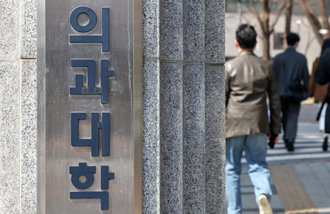[Opinion] Exchange Rate War
When President George W. Bush was elected, economists predicted that the ‘strong dollar’ policy of the former administration of Bill Clinton would fail. They observed that the Republican Party, a party that traditionally puts importance on trade could stand side by side with the strong dollar policy.
In the beginning, the Bush Administration continually stated that it wouldn’t give up its strong dollar policy but hardly anyone believed them. Sure enough! The recent slack in the dollar clearly shows that the U.S. has turned to a weak dollar policy. Some analyze that a strong euro was created to punish France and Germany, two countries that opposed the Iraq War. The European economy is experiencing double hardships with economic stagnation along with its strengthening currency, further causing a depreciation in import competitiveness.
Treasury Secretary John Snow made the U.S.` abandonment of the strong dollar policy official last month with his statement about ‘dollar stagnation approval’. Europe and Japan have started to get involved in the foreign currency market to prevent their currencies from strengthening thus displaying unusual aspects even to the point of being called, an ‘exchange rate war’.
Since the beginning of last year, the value of the dollar has decreased by 24% compared to the euro and 12% compared to the yen. The won is not an exception thus despite bad economic conditions, is strengthening on the dollar. In such case, the import production industry will suffer. In other words, the current ‘exchange rate war’, led by the U.S., isn`t much different from exporting domestic economic stagnation to other countries.
The only country completely unaffected by the exchange rate war is China. The Chinese yuan is fixed at 8.28 yuan per dollar, and will not be affected even if the dollar drops. Rather, it can even profit from strengthening price competitiveness from countries other than the U.S. China had 103.1 billion dollars in trade profit from the U.S. last year but persistently holds at its fixed exchange rate. It is a strategy to advance its economic development by expanding exports even if it means putting some pressure on domestic prices.
There is absolutely no chance that the U.S. who has lowered the value of the dollar will leave China alone. Not only the authorities in the U.S. but industries as well are putting pressure on increasing the value of the yuan by making trade threats. The exchange rate, which originally started in the world`s three major regions: the U.S., Europe and Japan, now has extended to China.
China recently has confronted it by stating that they “have no intention to change the fixed exchange rate.” However, it is worth noting as to how long China will maintain its current fixed exchange rate when going head to head with the U.S., a country still in charge of the international financial market. Let`s just hope that Korea won`t be too badly affected by this upcoming war between giants.
Editorialist Sang Young Kim (youngkim@donga.com)
Headline News
- Ruling, opposition parties to set up their election committees
- Financial authorities set to support auto industry
- LG's Arizona plant to produce cylindrical batteries from next year
- Yoon removed from office by unanimous court decision
- Constitutional Court mentions responsibility of both Yoon and National Assembly







